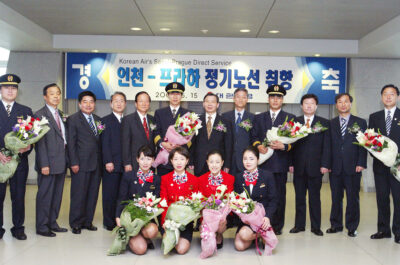REPORT FROM LONDON — There will be further consolidation of the online travel industry and it is inevitable in Europe the Pan-European companies will be the winners,…
REPORT FROM LONDON — There will be further consolidation of the online travel industry and it is inevitable in Europe the Pan-European companies will be the winners, said Opodo.com CEO David Scowsill in a keynote address at EyeforTravel`s European Travel Distribution Summit.
Consolidation, for both the leisure and corporate travel players, has been the name of the game over the last 12 months, as we have seen a spate of acquisitions and mergers and the US, he said.
Looking to the US for comparative data, Scowsill pointed out that the three top online travel agencies (Orbitz, Expedia/Hotels.com and Travelocity) account for 84% of all sales. Gross online travel sales for 2002 in Europe were 3.6 billion euros, about one-fourth of the 2002 sales volume in the US with online travel sales of 14.9 billion euros.
Scowsill said there is a trend for the travel business to be re-engineering of business models, as companies look for ways to further cut distribution costs and increase profits. As predicted last year, the European airlines followed the trend set by the US carriers, and in January this year reduced commission fees (to travel agents) down to 1% in the UK, he said.
Travel agent fees
The cutting of fees to travel agents was started by British Airways and was quickly followed by more than a dozen other European carriers. Lufthansa has announced that it will reduce commissions to zero in September, and Air France is seeking to do the same next January.
In the past year, there has been continued growth in the European online travel market as consumers move away from traditional travel agents in favor of buying online. Around 6% of total travel is now booked online, Scowsill said, with the largest maarkets being the UK (34%), France (19%) and Germany (19%). In Europe, of the 6% of travel sold online, 47% is booked through the online travel agencies and 53% through direct supplier channels.
The online sales mix is dominated by the low cost airlines who sell 95% of their tickets online. Potential over-capacity in the no-frills sector means that many are keen to diversify their business models and expand into new areas, he said. Ryanair has recently launched a separate website offering themed weekends and events, whilst easyJet is expanding its offerings of hotels, car rentals and travel insurance on their site.
Hotel sector growing fast
The fastest growing travel sector in the past year has been hotels. Once again, we can look to the US, where online hotel bookings are thriving, for an indication of what is likely to happen in Europe within the next couple of years, Scowsill said.
In the US, online hotel sales were $6.3 billion in 2002, and although this was a 42% increase over 2001, it still represents only 9% of all hotel sales. Further, online hotel bookings are predicted to dramatically increase, with some recent forecasts saying that by 2005 there will be online hotel sales of $15.2 billioin, for one out of five sales.
The European online hotel market, in comparison to the US, is much more fragmented, with fewer chains and more independent family owned hotels, Scowsill said. But, there is a bright future for online hotel sales in Europe. In the UK, online hotel booksings are forecast to grow from 2.2 billion euros in 2002 to 7.3 billion euros by 2007.
In addition to sales figures, mergers and acquisitions, Scowsill offered the 1,000 attendees at the EyeforTravel conference some predictions on technology. A key development is web services, which are a network of protocols and standards (such as XML) that enable companies to share information and integrate disparate web-based applications within an organization, across processes and between partners.
Pressure on GDS companies
In the travel world, web services enables multiple connectivity of different inventory and serves it up to the customer in a user-friendly fashion, Scowsill said. This dramatic shift will put real pressure on legacy systems used by tour operators and GDS (global travel distribution systems) companies, as intermediaries find faster and cheaper ways of getting inventory direct to market.
There will be further convergence of technical standards within the next 12 to 18 months, Scowsill said. What customers used to do on a PC, they can now do on a PDA, or a mobile phone, thus shaping the way people keep in touch both at home and at work, he said. The merging of contacts, diary management and e-mail has happened across a variety of devices. The only reason to carry a PC these days is for visibility of all those spreadsheets and PowerPoint presentations, which are too large and complex for small mobile devices.
Scowsill offered his prediction that in the next 12 months the low cost air carriers will allow wider distribution of their products through online travel agencies, as competition increases and they have more capacity.
One thing is very clear, Scowsill said. Technology will complicate the distribution picture even more, as all the players seek to get to the market even faster and even cheaper.
The European Travel Distribution Summit runs from May 17-19 2004 at the Ibis Earl’s Court Hotel in London. This conference is in its seventh year and is sponsored by Cendant, Google, Pegasus, AIG, Vodafone, Bibit, Genesys and DoubleClick.
Theodore is the Co-Founder and Managing Editor of TravelDailyNews Media Network; his responsibilities include business development and planning for TravelDailyNews long-term opportunities.





















































































































































































































